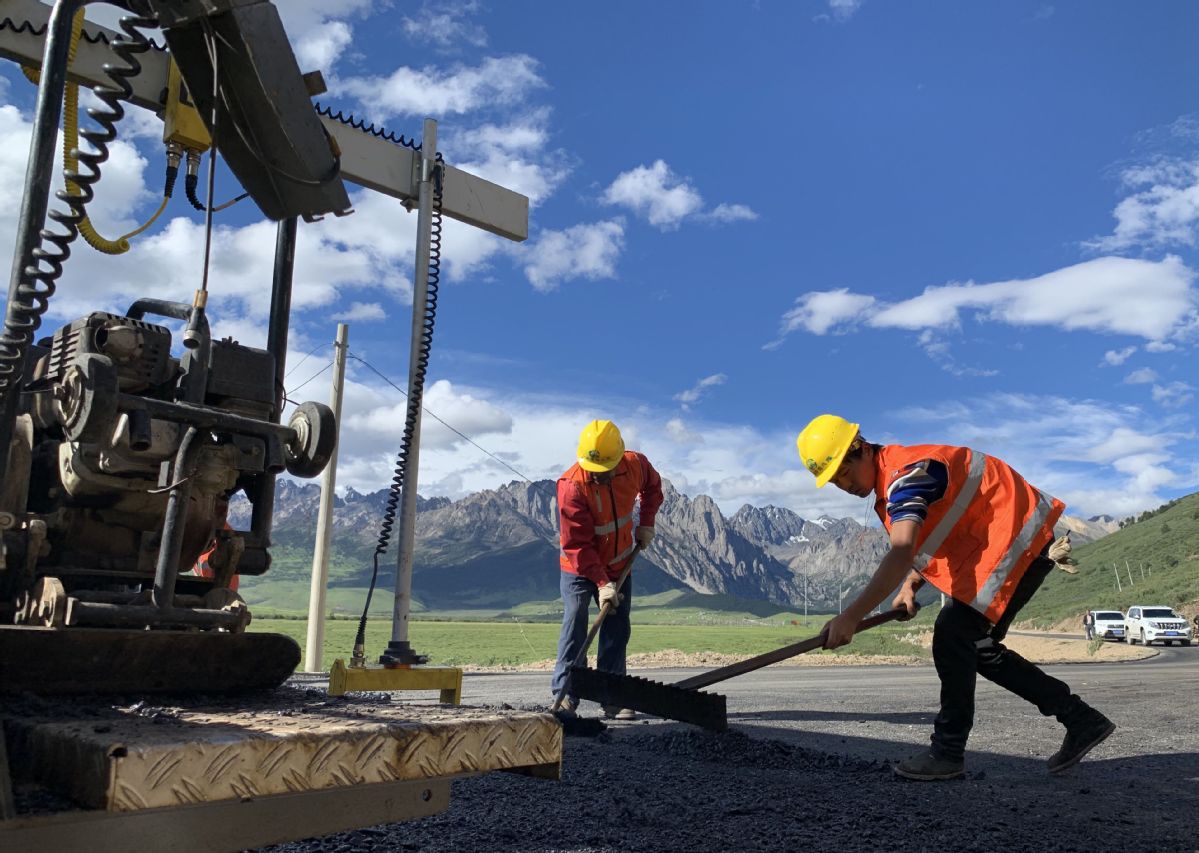CRCC units win rail contract in Thailand
By ZHONG NAN | China Daily | Updated: 2020-12-19 07:27
Two subsidiaries of China Railway Construction Corp, the State-owned rail construction contractor, have won a $415 million contract to build civil engineering projects for the China-Thailand high-speed railway, the Beijing-headquartered group said in a statement.

Under the deal, the group's two contractors-China Railway 11 Bureau Group Co Ltd and China Railway 23 Bureau Group Co Ltd-will build construction projects spanning 39.79 kilometers, including railway beds, bridges and railway stations for the first phase of the 250-km-long line linking the Thai capital Bangkok and the northeastern province of Nakhon Ratchasima.
An additional line connects Nakhon Ratchasima to the Thai border at Nong Khai province. A railway bridge linking Nong Khai province with the Laotian capital Vientiane will connect Thai railways with the Laos network. The planned length for this railroad, with a designated speed of 250 km per hour, is 900 kilometers.
Experts said it is one of the major connectivity projects between China and Thailand under the Belt and Road Initiative.
Upon completion, the railroad will be Thailand's first high-speed railway running across the country and connecting with Laos' Vientiane until it reaches China's Kunming, Yunnan province, said Feng Hao, a researcher at the Institute of Comprehensive Transportation of the National Development and Reform Commission.
The railroad is part of the involved countries' plan for a network of links across Southeast Asia, that had its start in a memorandum of understanding on railway cooperation signed by the Chinese and Thai governments in 2014.
Under the agreement, China will provide expertise and supervision, while Thailand will provide equipment and materials. At the request of Thailand, China will also use a number of Thai engineers and architects to help transfer expertise in maintenance, operation and management of the high-speed railroad, according to information released by the Chinese embassy in Bangkok.
CRCC said this is a significant breakthrough for the group's branches to jointly develop the overseas market. It has not only successfully extended the company's business in Thailand, but also enhanced cooperation and mutual trust with local partners and created a solid foundation for the company's future expansion in Thailand.
Apart from creating growth opportunities such as trade in goods and services, cross-border investment and tourism, the project is also vital for boosting connectivity between China and the Association of Southeast Asian Nations through the China-Laos railway and other economic corridors in the region to better connect with other ASEAN economies such as Malaysia and Singapore, according to the CRCC statement.
In addition to supporting growth arising from the future implementation of the Regional Comprehensive Economic Partnership agreement, the China-Thailand high-speed railway project will be a showcase for effective alignment between the BRI and Thailand's infrastructure development plans, said Zhang Jianping, director-general of the Beijing-based China Center for Regional Economic Cooperation.
Serving Thailand's northeastern regions and covering major cities, the railway network will be a powerful engine for economic development and better standards of living in the region, he said.
Chiyawan Chongvatana, commercial minister of the Thai Embassy in China, said the RCEP will not only reinforce the cooperation of regional and global value chains, but also enrich participants' ability to attract foreign direct investment amid the global fight against the COVID-19 pandemic.
Market access and other traditional business areas aside, the RCEP agreement also includes a number of new components, such as intellectual property protection and collaboration, e-commerce and small and medium-sized enterprises, indicating the agreement is a modern and high-quality agreement, and it also promotes transparency and predictability of trade, she said.
Together with better developed infrastructure facilities, the Thai diplomat said the RCEP will help the region gain more economic and trade advantages.
zhongnan@chinadaily.com.cn
























